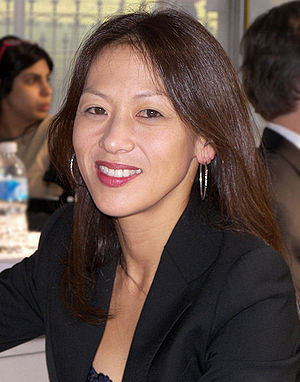The novel “Battle Hymn of the Tiger Mother” by Amy Chua, which was featured in a January 2011 Wall Street Journal post, has created a controversy amongst parents and children across the nation regarding the topic of parenting styles today.
According to Chua, forcing her children to follow strict work regimes with academics and musical instruments is an effective style of parenting because in turn, her children will be more successful. They are not however, allowed play dates, sleepovers, or anything of the sort. Chua takes “tough love” to a new level with her harsh use of language against her daughters to make them perform better.
No strangers to stress, Staples students are used to the high pressure that comes with living in this society. A huge focus on GPAs, making a sports team, and SAT scores often times results in a build up of pressure that boils over the top.
“The pressure to succeed in school and the pressure to be a good adolescent affects me,” Molly Barecca ’13 said. Although Barecca does not feel that it is right to judge ways of parenting, she appreciates her parents’ pressure because it’s realistic, and they push her to do what they know she can achieve.
While many parents will wholeheartedly say that Chua’s parenting method is wrong, other parents can agree that it can be very effective depending on the child.
Suzanne Propp, Greens Farms Elementary School teacher and Westport parent, is what Chua would call a “Western parent” due to her more relaxed approach.
“[Me and my husband’s] single goal is for our children to be happy, which sounds naive but we know that for one child, being happy will mean being rich and successful…while another child might be happy spending life as a ski instructor in Utah and grades might not be all that important to his/her success,” said Propp.
Linda McClary, child development teacher at Staples, believes mental stress, dissatisfaction throughout a lifetime, and having poor relationships can be effects from Chua’s extreme Chinese way of parenting. McClary believes that it is not hard to see these effects around Staples. “Look at the number of students who are on anti-anxiety and depression medication. I don’t think that the pressure is at the same level that Chua references is in the Chinese culture, however it is present,”
Living in a society where success is important and sometimes expected, there is a range of views on the controversy regarding this book. Chua shows an extreme on the spectrum of parenting that has shocked many and satisfied many. The choice of how to raise children is a personal one, but the effects must be taken into consideration.















































C • Mar 16, 2011 at 2:47 pm
I find it extremely offensive that you label it as a “Chinese” way of parenting. I know you were quoting someone, but allowing someone to say that in an article without qualifying it is terribly misguided and only perpetuates Asian-American stereotypes. I think this article doesn’t say anything. And it misses the fact, completely, that the book was meant to be a tongue-in-cheek examination of Chinese stereotypes. Have you even read it?
On a more personal note, I have always despised it when people separate “Chinese” from “Western.” Were my parents overprotective and controlling? Only as much as any other “Western” parent. At college, most everyone I know had more controlling parents, and they aren’t Asian-American. But despite the fact that my parents worked their butts off trying to come to the United States and work low-paying working class professions despite having earned professional degrees (law and medical) in China, they are still viewed as “non-Western” and are automatically put in this more critical lens because they’re still “foreigners” or “different” despite having been citizens for a large part of their lives. I think my parents would be terribly offended if they realized that most of the US views the terms “Asian” and “American” as being in conflict.
Also, I don’t think it’s Western to only want happiness for your children. I’m a philosophy major, for goodness’ sake, at a school I CHOSE and wanted to attend. I graduated in the top 10% at Staples because I wanted to do well, because I deeply cared about my academics. The stress at Staples is ridiculous, and I think that my parents were ten times as relaxed about pressuring me to a certain profession. Sure, they would have preferred if I were pre-med, but they soon forgot about that after I told them that I loved philosophy and was receiving A’s in all my philosophy classes. They knew it was making me happy, and that was what mattered. That’s not a Western or an “Asian” thing, that’s a good parenting thing.